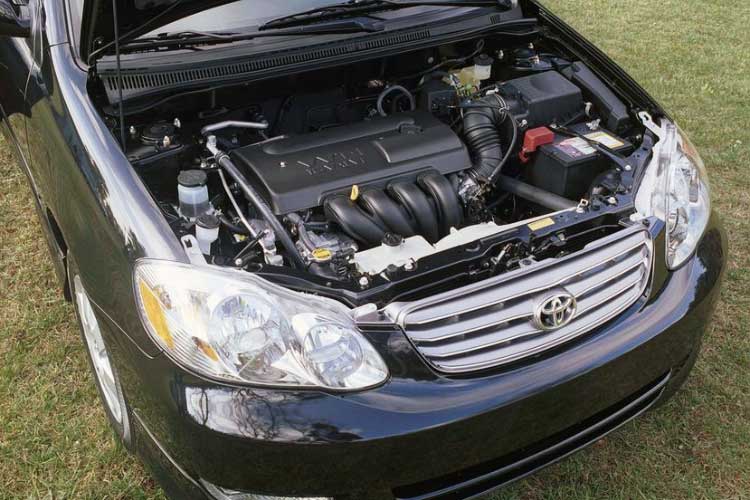If you’ve had a car for a long time, you might eventually need to replace the radiator as it might malfunction or be damaged. And it’s quite inevitable, so you shouldn’t overthink replacing it.
But why is your car overheating after replacing radiator? This usually happens due to the thermostat, cooling system, coolant level, water pump, and leaks.
Today, we’ll go over all of these issues with the fixes and how you can prevent them later on. Let’s go through them.
Car Overheating After Replacing Radiator: Problems & Fixes
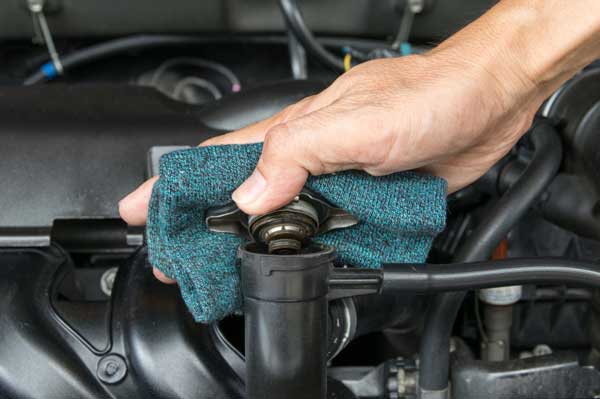
Before we begin with a detailed explanation, you can take a look at this table. This can give you a general idea of all the problems which can cause your car to overheat after replacing the radiator, and how to fix them —
| Problems | Fixes |
| Thermostat | Test the thermostat and replace it |
| Water Pump | Do a pressure test and replace it |
| Air In Coolant System | Bleed the coolant system |
| Coolant Level | Add more coolant and check the height level monthly |
| Clogs Or Leaks | Clean the clogs or replace the part |
What Causes A Car Overheat After Replacing the Radiator & How To Fix it?
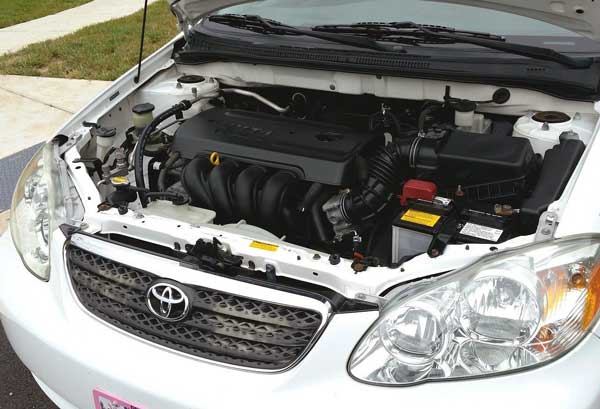
Here are all the causes and fixes to an overheating car after replacing the radiator —
1. Thermostat
The thermostat in your car is responsible for regulating the coolant flow from the engine. If your engine is cool, the thermostat will close, but it’ll open back up when the temperature is high to cool everything down.
However, after installing a new radiator, the thermostat might not be opening properly to cool down the engine anymore, causing your entire vehicle to overheat.
You can also take a look at forums, preferably a forum of a vehicle’s official brand to get a better idea of the issues.
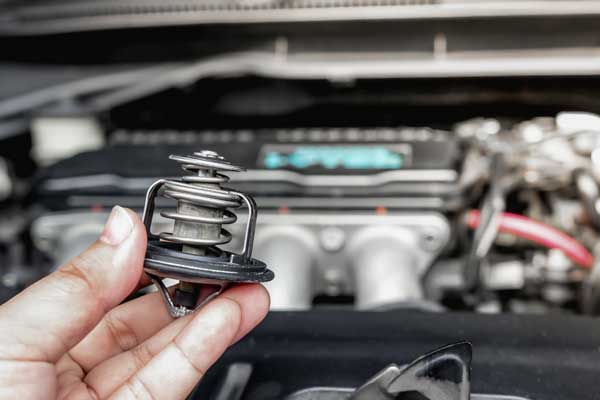
Fixes
To fix thermostat issues, you should first test the thermostat. If you’re sure that it has issues, replace the thermostat entirely. If it happens to be a defect, the brand of your car will replace it itself.
2. Water Pump
The water pump in your car is another part responsible for controlling the temperature, as it can help to circulate the coolant from the radiator to the engine.
If you have issues with your radiator or you installed it newly, the water pump might not be working as intended. Thus, it might not supply enough coolant.
For specific problems, you can take a look at the Reddit page as well as the forum for a better idea, too.
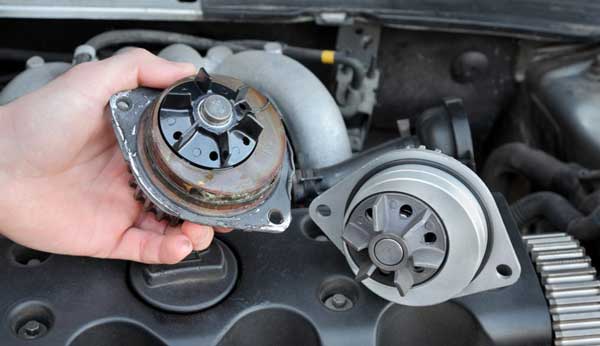
Fixes
To fix issues with the water pump, you should try to do a pressure test first. If you still don’t see any issues, run a full diagnostic scan to get DTC codes. From there, you can fix the water pump according to the DTC code.
If you want an easy fix, though, you should simply replace the entire water pump. But you can save some money by fixing it yourself with some effort.
3. Cooling System Air
Although it might seem rare, it’s not too uncommon for air to get trapped inside your car’s cooling system. This can block the flow of the coolant, eventually leading to serious overheating.
Usually, this is caused whenever your coolant system isn’t bled after replacing your radiator.
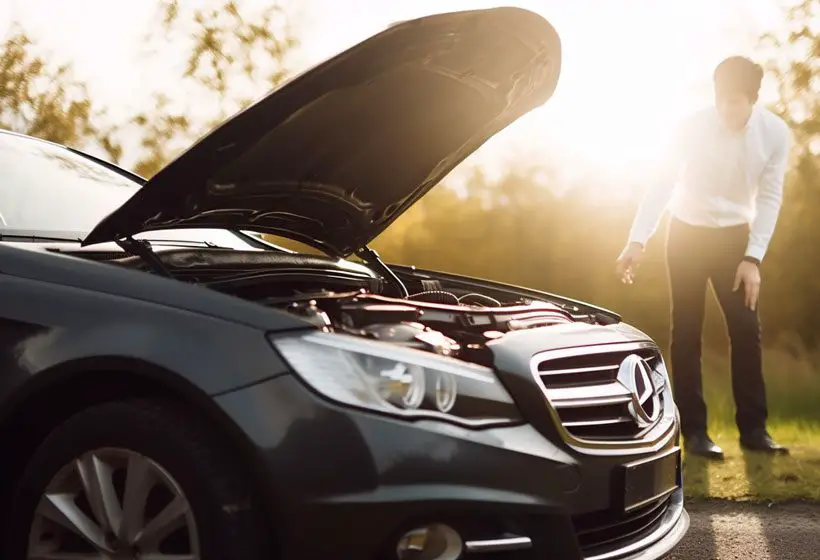
Fixes
To fix this issue, you should bleed the air from the coolant system. You can do this by running your engine while the radiator cap is off, up until your coolant flows completely out of the bleeder valve. Afterward, replace the cap.
For a visual representation, you can check out this YouTube video below.
4. Coolant Level
When you install a new radiator, the level of coolant might be too low. This means that your radiator won’t be getting enough coolant, which can lead it to cool the engine slightly less, which often leads to overheating.
Fixes
To fix this, you should actively check for the coolant level. And if it’s too low, make sure to fix it by adding more of the coolant manually.
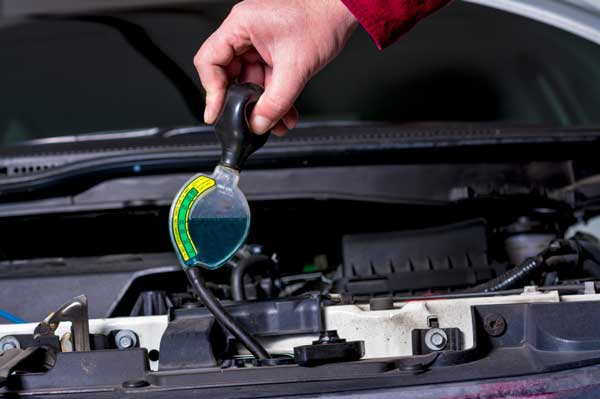
5. Clogs Or Leaks
Finally, the last issue which might cause your car to overheat after replacing your radiator is through clogs or leaks. You might get clogs and leaks commonly in the coolant system, which will obviously lead to overheating.
This issue is basically inevitable, and there isn’t much to do about it aside from maintaining your car properly.
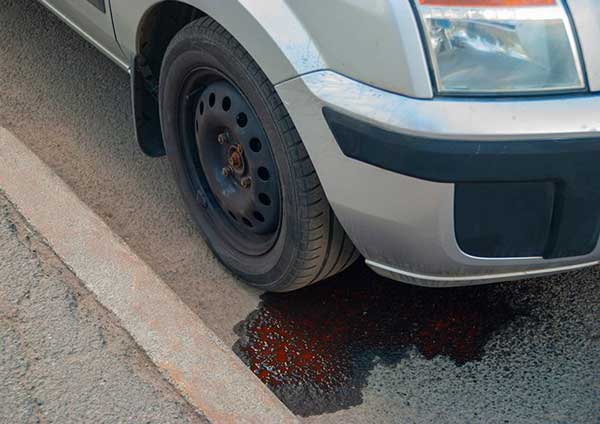
Fix
Whenever you see leaks or clogs, you should just clean them yourself or patch up the leaks. Sometimes you might need to replace the parts if the leak is too big or the part is too dirty.
Just make sure to properly maintain it and check for these leaks and clogs every 1-2 months, or else you will keep getting overheating issues.
If you’re experiencing car overheating after replacing a radiator, you may also be interested in our articles on car overheating in stop-and-go traffic and car cranks but won’t start after overheating. These articles provide valuable information and solutions to common car overheating issues. Whether you’re dealing with overheating while in traffic or experiencing starting issues after an overheating incident, our team at Car Problem Solved is here to help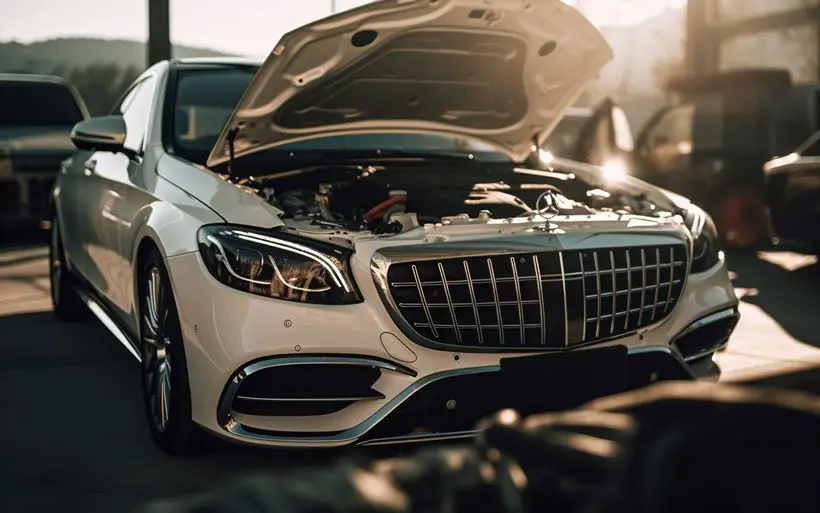
FAQs
If you have other similar questions, you can take a look at these questions below to clear up further confusion —
Yes, you can. Although it can be a bit more difficult than a clog, you can also fix leaks through a liquid radiator sealant. This is added directly to the coolant, and once it goes through the system, it’ll automatically patch up any leaks.
This is just a temporary solution, though, and you should still get a professional to patch up the leak permanently.
You can check the coolant level by seeing your coolant reservoir. This is normally located near the radiator of any car. And it should have “full” and “low” marks embedded in it. Check it at least monthly to make sure you have enough coolant and your car doesn’t overheat.
No, it’s not necessary to service your radiator or even replace it often. Just make sure to maintain it properly as you would maintain other parts. Clean it every couple of months, and check if it has enough coolant. If you do this, you shouldn’t ever face overheating issues.
Conclusion
Overall, if you’re experiencing issues where the car overheats after replacing radiator, it’ll mostly be caused by your thermostat, the coolant system itself, leaks, clogged up air, and low amounts of coolant.
To fix these issues, you can run a test on your thermostat and replace it, or you can check the main coolant system to see for any clogs, or leaks. Then make sure it has enough coolant. If you do this, you usually won’t have to worry about having overheating issues. But if you do, it’s best to call a professional for help.
